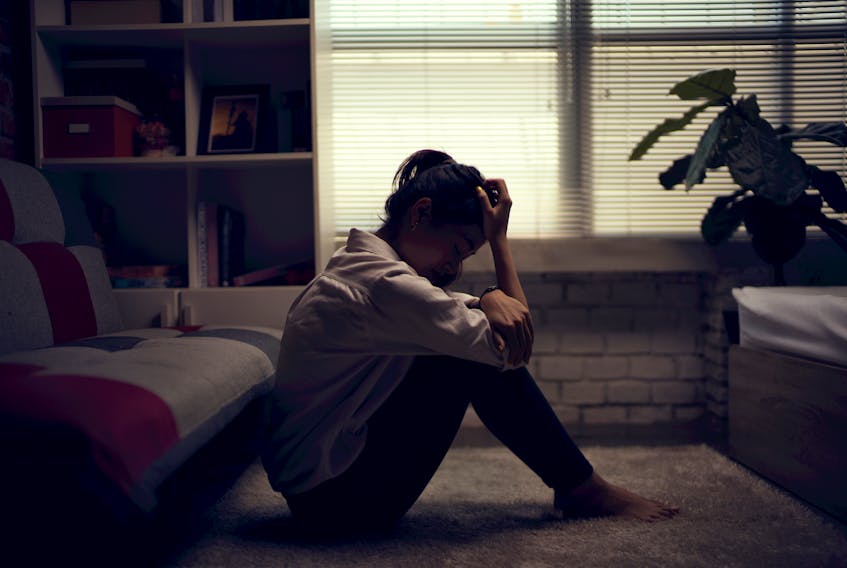“It was my fault.”
A few years back, a woman, “beaten incredibly badly,” says Cape Breton Transition House Association executive director Helen Morrison, sought shelter at Sydney’s Willow House.
When Morrison talked to her, she blamed only herself.
“What do you mean, it was your fault?” asked Helen.
“I walked on that floor when he was watching the hockey game,” the battered and bruised woman explained. “I walked on that floorboard that creaks. And I know that he gets angry when I walk on that floorboard. But I just forgot myself.
“And he got up, and he was so angry.”
Sadly, the woman couldn’t understand it wasn’t her fault, at all.
Due to overwhelming fear of her abusive partner, her life had been reduced to “cause and effect,” says Morrison. Asked about times she hadn’t done anything but still was beaten, she insisted she “must have done something to piss him off.”
In what is a recurring theme, the man took no responsibility for his actions.
Too many stories like that woman’s still go on today, largely hidden from public view.
That’s not to say there hasn’t been significant progress in tackling domestic and gender-based violence.
As Shiva Nourpanah, co-ordinator for the Transition House Association of Nova Scotia, noted when I chatted with her and Morrison this week, it’s significant, for example, that once common casual jokes and other unacceptable media depictions concerning domestic violence have now largely disappeared from films.
Years of working with the justice system, including police officers, to better understand and support victims of domestic violence have helped tremendously, says Nourpanah.
But the problem is still out there.
Last year was hell for a lot of people. But the pandemic was even worse for women in violent relationships.
Lockdowns confined many at home with their abusers. One or both may have lost jobs, further increasing stress levels.
Meanwhile, fear of the coronavirus made many of these women reluctant to consider seeking shelter at transition houses, where they’d have to mingle with strangers.
Premier Stephen McNeil’s admonition last spring to “stay the blazes home” inadvertently didn’t help.
“One of the things you have to understand is that women who have been living in abuse, they take direction from men very well because their life depends on it sometimes,” says Morrison. “So when the premier was saying that, I think that really struck home with them.
“I think they believed that they were to stay home, regardless.”
Thankfully, after transition homes approached government with their concerns, “the premier was very quick to put on his daily broadcasts at that time: ‘Stay home — unless, of course, it’s unsafe for you to be at home.’”
After that, her shelter saw an increase in interest in seeking shelter, says Morrison.
In 2020, 10 THANS transition homes across Nova Scotia — which doesn’t include HRM — dealt with a couple of thousand clients, says Nourpanah. Demand ebbed and flowed. Nearly 600 sought shelter, including more than 180 children under age 16. (Couldn’t get HRM stats by deadline).
Women’s shelters elsewhere reported large increases in demand during the pandemic. THANS’s issues with capacity were more about lack of mental health and other situational supports, says Nourpanah.
Her big takeaway lesson from 2020? Domestic violence is not just a women’s issue; it’s a societal issue.
The decades-old fraying of the social safety net, homelessness, lack of affordable housing, insufficient support for mental health, childhood trauma — all can be contributing factors.
“I think the reality is that there are a lot of people who experienced horrible trauma as children and who are fairly stable adults,” says Morrison. “But I do think it plays a role, for sure.”
And then there’s the core problem, male violence, which also victimizes many other men.
“It’s a very complicated, multifaceted issue,” says Nourpanah. “And we can recognize all these social factors while also acknowledging that, at the end of the day, individuals have to take responsibility for what they do.”
Help does exist for men, both those suffering abuse (though not in shelters) and those who abuse their partners. Transition houses run programs for men on healthy relationships, and also refer men to provincial programs.
But men who are abusive and seeking help are usually on the lower end of the spectrum, who’re shocked by their actions, says Morrison. Not chronic abusers.
“I think men who practise coercive control and the higher levels of abuse, I don’t think that they’re the ones looking for help.”
Not surprisingly, transition homes could use more funding.
“I can say to you, after 30 years of working in this, and as a child having lived in some of it, and experiencing some abuse through my family, I have to tell you that I don’t know what the answers are,” says Morrison. “And I don’t know how we’re going to change all of this, other than putting one foot ahead of the other, and hoping that there comes a generation where they don’t see each other in that way anymore.”
Victims of domestic violence who need help can contact individual transition homes, THANS (in the province), Bryony House (in HRM) or simply call 211. In emergencies, call 911.









